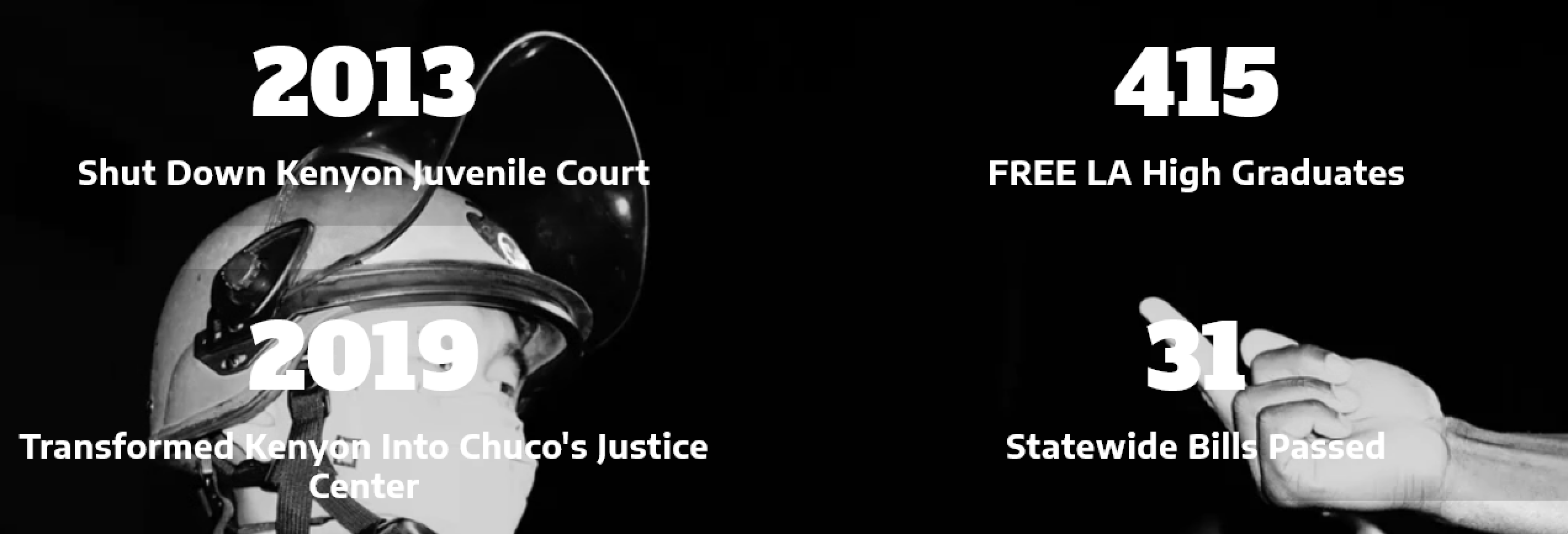
Money. (Photo:public domain)
Loud Cash, Quiet Power: Foundations Extend Political Tentacles
…six-figure foundation salaries, skirting laws regarding charities and politics
By Thomas Buckley, December 28, 2023 2:25 pm
Over the past decade or so, numerous California foundations have moved beyond the idea of doing good for the general community and now do good for very specifically chosen activists – and themselves.
Groups like the Tides Foundation and The California Endowment use their massive piggybanks to fund overtly political organizations.
A short time ago, the Los Angeles Times finally noticed this shift and they think it is just fine – much more than fine, actually.
And why does the Times think its perfectly wonderful that unaccountable and supposedly non-political (it’s in the law…kinda) non-profits and foundations are dumping buckets of – in many cases, their parents’ – money into the civic realm?
You’re so far ahead of me I’m not sure I even have to type the words “social justice.”
“Over the last decade, more and more of L.A.’s institutional foundations have gotten behind that idea: trusting nonprofits with increasing amounts of money, with fewer restrictions,” wrote the Times. “L.A.’s leading philanthropic foundations have ‘transformed’ themselves, says Aaron Dorfman, executive director of the National Committee for Responsive Philanthropy. These formerly tradition-bound charitable institutions have become ‘national leaders in their commitment to equity and justice,’ he says.”
Even more directly, note the Times: “There’s a sea shift in who has power in California,” says John Kim, president and CEO of Catalyst California, which advocates for racial justice and whose revenue has doubled in recent years. “Money is power, and the foundations are giving it directly to people of color.”
Did the Times mention six-figure foundation salaries, skirting laws regarding charities and politics, the fact that the current use of funds may not quite align with the vision of the people who actually made and then donated the money, that the ethics of such a shift are at best dubious, or that maybe – just maybe – not everyone supports such activities?
Of course not.
One could argue that the foundations are merely following the societal trends of the people who fund and run them – well-paid, hyper-credentialed, guilty of their success progressive types who are absolutely sure they know better because they have letters after their name or have “lived experience” that the old guard could not begin to comprehend.
But that would miss a crucial part of the “chicken or egg?” equation because the foundations bought the chickens years ago – aptly, if figuratively – to lay the egg that is the current state of California.
In other words, none of what has happened in the philanthropy world is a coincidence.
Not convinced? In 1999, Fred Ali was tapped to lead the Weingart Foundation and quickly began replacing an “aging, all-white” board with people aligned with his progressive vision.”
Ali retired in 2021 and was replaced by Miguel Santana, notes the Times, who proceeded to launch a “truth and reconciliation” effort, hiring Edgar Villanueva. Villanueva is the author of “Decolonizing Wealth,” an indictment of old-school American philanthropy, said the Times: “Coming to terms with that history,” says Villanueva, “grieving that, apologizing for it,” sets the stage for “reparations to repair the harm caused by that history.”
In its grantmaking, the Weingart Foundation applies “an equity framework to all of our decision-making, asking how the choices we make advance racial, social and economic justice.”
The relationship between the Weingart Foundation and Weingart Center – a significant part of the homeless-industrial complex making bank off of the absurd idea of “permanent supportive housing” – is not exactly clear.
The Times also highlights The California Endowment. If that name is familiar, that’s because the Globe has run a series of articles on how awful and deceitful it is. The California Endowment was created when a non-profit health insurance company bought a for-profit one and the state demanded it do something nice for the state, hence the creation of the Endowment specifically to improve health care and access to insurance in California.
Now, the Endowment does no such thing:
$50,000 dollars – That’s what The California Endowment awarded in grants specifically to “make health insurance accessible to all in California.”
$70,000,000 dollars, at least – That’s what the Endowment spent on advocacy, organizing, media, communications, empowerment, etc. grants.
The egregious ethics and base immorality of a $4.4 billion dollar foundation created specifically to improve health care access for the un-and-underinsured of the state spending barely even a token amount of money on its statutory purpose is perfectly clear. Whether or not it’s legal is a bit less so.
The Endowment pays Dr. Bob Ross about a million dollars a year as its president. Initially, he told the Times, that he worked hard to “alleviate misery with charity.” But eventually he had a change of heart:
“Poor Black and brown folks are at the short end of health disparities,” says Ross, “which tells you what we’re dealing with is structural. It’s systemic. It’s not bad luck.”
In 2010 he shifted millions of dollars from the health initiative and started funding advocacy efforts by several nonprofits that, by 2021, permanently expanded Medi-Cal eligibility to a broad underserved population across the state.
And never underestimate the power of groupthink or not wanting to be left an invitation list. The Times utterly uncritically notes that “Ali, Ross, (and others) formed a new progressive core within L.A.’s philanthropic ecosystem. In 2014, Don Howard became president and CEO of the James Irvine Foundation and joined their ranks.”
So Don got to sit at the cool kids table at lunch – good for him.
The Times moves from one wonderful equitable funding success to the next of its lionized foundations, from the Youth Justice Coalition here’s a screenshot from the website:

…to the Afrikan Black Coalition, a group born out of the UC system that lists as it values “Mass Organization, Pan-Afrikanism, Black Nationalism, Collective Economics.” (For a fully-immersive experience in woke thinking, please do read the entire Times piece. It does the owner’s very rich very woke daughter proud.)
The big question the Times did not ask or even allude to – because they see it as wonderful and do not really ever ask questions of people and systems they support – is why, beyond cultural cachet, have the foundations shifted. Maybe the question wasn’t asked because the answer is so obvious: power.
Foundations and non-profits are, for the most part, seen by the public as neutral arbiters of the good. People think of their local “friend of the library” group or the Kiwanis adopting a road when they hear “non-profit.”
They do not think of them as key elements in the obliterative transformation of society.
Foundations hide behind this residual goodwill – “we don’t do this for money, we do it for you.”
Psychologically, that position is very handy, especially when you are paid the kind of money the foundations pay their staff. Few people are more insufferable than those who think they are doing good while doing very well indeed.
The power does not stop at cash, though. The literally thousands of organizations that live off of foundation (and government) money will never ever really criticize the power structure of which they are a part; despite the protests, the screaming of racism, the strident language of being transformative, the loud criticism of all things “systemic,” they do not want the system to change to the point they may be out of a job – they just want a bigger piece of the pie and they are happily cowed as “stakeholders” in the blob. From the article “Infective Maltruism:”
“…’friendly’ oligarchical systems will use them often to both provide a sheen of respectability and to reward and/or create political allyship with various groups, such as non-governmental organizations, academia, social service providers, and such. As the saying goes, if you are not at the table, your dinner.
And, as demonstrated perfectly by the Times piece, the foundations and agencies and activists and community organizations create an unassailable “feedback loop” of backscratching, a nearly impenetrable fortress of progressive money that creates the public image of ultimate do-gooding.
And they are very handy to have around for the Times, too – whenever they need a quote to support some absurdity they favor, there they are.
The foundation shift nearly exactly mirrors the shift in academia towards an increasingly totalitarian/statist view of the world, a world run by properly credentialed bureaucrats for the good of the people at the behest of their moneyed overlords.
When the political terraforming is complete when the last vestiges of a society being perceived – and run – as a group of discrete of individuals and not a collective mass, the folks currently on the generous end of the foundations’ money should realize that they will be waved aside and dismissed as the useful idiots they are.
And that’s power.
- Reedley ‘Lab’ Prompts Legislation - April 26, 2024
- USC Cancels Graduation - April 26, 2024
- Where Does Gascon Go From Here? - April 25, 2024





Thank you for covering this hidden menace. Better to have the information than not have it, overwhelming and unsolvable as it seems. Most so-called non-profits have never been ‘non-profit’ and now the non-profits and foundations only grow and grow until they become like “The Blob” covering every inch or even “Godzilla,” stomping around and destroying our system. What is the answer?
Waiving aside the useful idiots currently on the generous end of these corrupt foundations’ money cannot come soon enough.